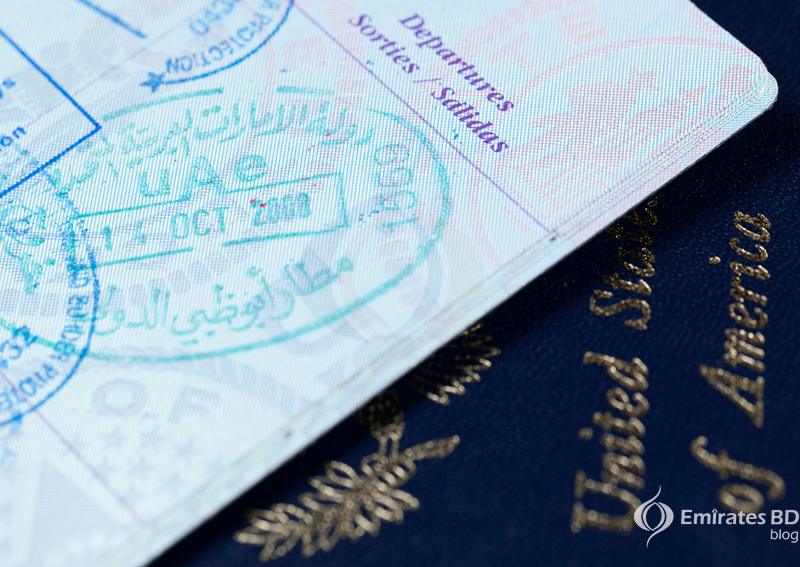UAE residency is highly sought after. However, that’s not to say to process of obtaining it is overly challenging – as evidenced by the fact that around 80-90% of the nation’s total population are expatriates.
Providing you seek the right guidance and meet the country’s comprehensive entry criteria, applying for, and obtaining, a UAE residency visa can be very straightforward. Here’s everything you need to know about UAE visa rules.
How can I get a residence visa in Dubai?
Before applying for your UAE residency visa, you should first check that you are eligible to reside in the UAE. Foreign citizens are permitted to live as residents providing they fit into one of five categories.
- Employed: You are eligible for UAE residency if you’re employed by a private company or government body in the country. In this instance your employer will make your visa application on your behalf once you are in the UAE. They will also act as your sponsor throughout the duration of your visa.
- Investor: An investor visa is issued to UAE business owners. For this option, you would establish a company in the Emirates and then make your own application under the sponsorship of your registered company name.
- Freelancer: Individuals in certain fields can apply for a freelance visa. These include media, technology and education. To take this route you would need to apply to a UAE free zone for a freelance permit and make your visa application at the same time.
- Property owner: Investing in property in the UAE is another way to obtain a UAE visa. Once again you would make your own application and your residency visa will be sponsored under the property that you own.
- Dependant: If you are the dependant of a UAE residency visa holder, they can sponsor you for your own visa. Dependants can include spouses, children, parents, and domestic staff.
As well as meeting the criteria above, you must also abide by the UAE visa rules. These require you to be over the age of 18 (unless you are a dependant), pass a security check, submit biometric information and pass a medical test.
UAE visa application process
The UAE visa application process consists of four key stages – entry permit, status change, medical test and visa stamping.
The first step is to apply for an entry permit. This is essentially a temporary visa that allows you access to the UAE for up to 60 days. Once you have obtained your entry permit you can enter the country to make your full visa application. It is best not to leave the UAE and re-enter until you have obtained your residency visa. Doing so can cause difficulties with immigration.
If your application is successful, you will receive your entry permit via email.
Once you have your entry permit, you must activate it. This is known as a status change and can be done in one of three ways. You can opt for an in-country status change which requires you to send your passport to UAE immigration services who will stamp and activate your visa.
Alternatively, you can activate your entry permit via an out of country status change – this an option if you are out of the country when making your visa application. Here you simply present your passport and entry permit to immigration at a UAE airport. It is then stamped and activated.
Finally, you can activate your entry permit via what is known as a border run. Here you would leave the UAE by land and then re-enter, once again presenting your visa to an immigration official who will stamp and activate it. This option is only available if you already hold a passport that permits visa-on-arrival access to the UAE.
With your entry permit activated, you will then need to undergo a standardised medical test. This includes a blood test and x-ray.
Providing you pass your medical you can then apply for an Emirates ID card. As part of this process you may be required to visit an immigration centre to submit biometric information such as your fingerprints and eye scan.
Finally, your residence visa will need to be issued and stamped. To complete this final stage you must submit your passport to immigration. They will then affix and stamp your visa in your passport before sending it back. This process usually takes around two weeks.
Can I get permanent residency in Dubai?
While permanent residency in Dubai is theoretically possible, at this stage it is not easy to obtain. In May of this year, His Highness Sheikh Mohammed Bin Rashid Al Maktoum, announced the “Golden Card” permanent residency scheme via his official Twitter account, saying:
“The permanent residency “Golden Card” will be granted to exceptional talents and everyone who positively contributes to the success story of the UAE. We want them to be permanent partners in our journey. Residents are an indispensable part of our country.”
It is understood that the first stage will see a few thousand foreign residents issued with permanent residency. Currently, Golden Cards are limited to those who have invested over AED 100bn into the UAE economy. It is unclear at this stage whether that criteria will be relaxed in future.
Benefits of a UAE visa
There are many great benefits of holding a UAE residency visa. As well as being able to live and work in the Emirates, as a resident you are also able to open a bank account and access other financial facilities, apply for a UAE driving license, access government health services and facilities, enrol your children in government and private schools and travel visa free to destinations including Sri Lanka, the Maldives and Azerbaijan.
Obtaining your UAE residency visa
Providing you meet the entry criteria and understand each stage of the process, applying for a UAE residency visa doesn’t have to be difficult.







